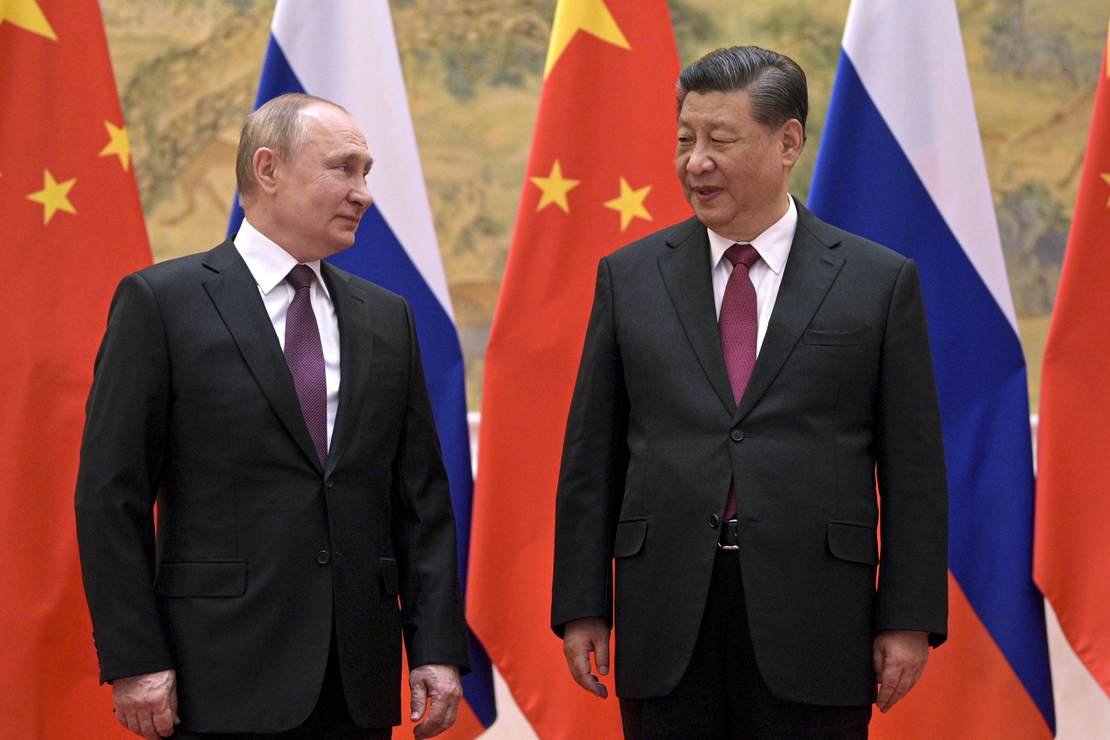
Agreeing with Paul Krugman isn’t something I expected to happen this year but he wrote something yesterday that’s worth a look.
As the US, UK and EU are putting in place sanctions that seem destined to wreck Russia’s economy, China is privately worried about the free world’s close cooperation:
The CIA’s director said Tuesday he believes China leader Xi Jinping has been “unsettled” by Russia’s difficulties in invading Ukraine, and by how the war has brought the United States and Europe closer.
“I think President Xi and the Chinese leadership are a little bit unsettled by what they’re seeing in Ukraine,” Central Intelligence Agency boss William Burns told US lawmakers during a hearing on global threat assessments…
He said Beijing was worried about the economic consequences of being a Moscow ally at a moment when China is facing lower annual growth rates than it has for much of the past three decades.
Xi Jinping recently expressed his commitment to a friendship “without limits” with Russia and now just a few weeks later, Russia is heading into serious economic decline with no help possible from anywhere except China. So the question becomes: How much is China willing to do for Russia? Can it buy up all the oil that the US and UK are going to stop buying? Can it increase trade to help Russia stabilize its currency and hold off inflation?
CNN reports that stocks connected to Russian trade are big winners in China right now. But things may not play out the way small Chinese investors believe they will.
From shipping firms to port operators, shares of more than a dozen Chinese companies that have trade links with Russia, or are close to its borders, have soared in the past week, even though some of them have warned investors that their stock is overvalued…
There is a “disconnect between a legion of retail investors operating in a limited information environment, and the government’s limits to friendship with Russia,” said Jeffrey Halley, senior market analyst for Asia Pacific at Oanda.
“Clearly, the man on the street believes that China-Russia trade will not be impacted by ‘American’ sanctions, especially in light of the recent ‘deep’ partnership agreement between the two countries,” he said.
“Unfortunately, China also does a huge amount of business with the rest of the world, and there may be limits to even China’s diplomatic largesse,” he added.
How big is the difference? Russia accounts for 2% of China’s trade. The EU and the US, by contrast make up just over 26% of China’s trade. And that brings us to Krugman who wrote yesterday that China probably can’t bail out Russia for four reasons.
READ RELATED: Katie Ormerod Injury Update: How Old Is The Snowboarding Athlete? Meet Her On Twitter
First, China, despite being an economic powerhouse, isn’t in a position to supply some things Russia needs, like spare parts for Western-made airplanes and high-end semiconductor chips.
Second, while China itself isn’t joining in the sanctions, it is deeply integrated into the world economy. This means that Chinese banks and other businesses, like Western corporations, may engage in self-sanctioning — that is, they’ll be reluctant to deal with Russia for fear of a backlash from consumers and regulators in more important markets.
Third, China and Russia are very far apart geographically. Yes, they share a border. But most of Russia’s economy is west of the Urals, while most of China’s is near its east coast. Beijing is 3,500 miles from Moscow, and the only practical way to move stuff across that vast expanse is via a handful of train lines that are already overstressed.
The fourth point Krugman makes is one that I was wondering about a few days ago.
Xi and Putin have long been authoritarian bullies but they seemed somewhat independent at least. What happens when the world’s biggest bullies team up with Xi calling the shots?
— John Sexton (@verumserum) March 3, 2022
Krugman thinks that if Russia becomes entirely dependent on China the result is probably the opposite of what Putin was looking for with this invasion:
Putin may dream of restoring Soviet-era greatness, but China’s economy, which was roughly the same size as Russia’s 30 years ago, is now 10 times as large. For comparison, Germany’s gross domestic product was only two and a half times Italy’s when the original Axis was formed.
So if you try to imagine the creation of some neofascist alliance — and again, that no longer sounds like extreme language — it would be one in which Russia would be very much the junior partner, indeed very nearly a Chinese client state. Presumably that’s not what Putin, with his imperial dreams, has in mind.
Putin wanted to make Ukraine a client state of Russia to increase his own power and standing. He’ll be very wary of letting Russia become a client state of China. Meanwhile, China can help Russia’s economy to some degree but won’t risk creating a backlash among China’s far more important customers in the US and EU. Xi has seen what can happen when the free world draws a line and he’s going to avoid that.
Bottom line, the marriage made in hell between the world’s leading autocracies probably isn’t going to happen. There will be some chummy talk and some bargains made but neither side is really looking for a full commitment. Anyway, that’s the argument and it seems reasonable at this moment. Who knows how things will look if Russia’s rate of inflation gets stuck in triple digits for a year.
Source:






